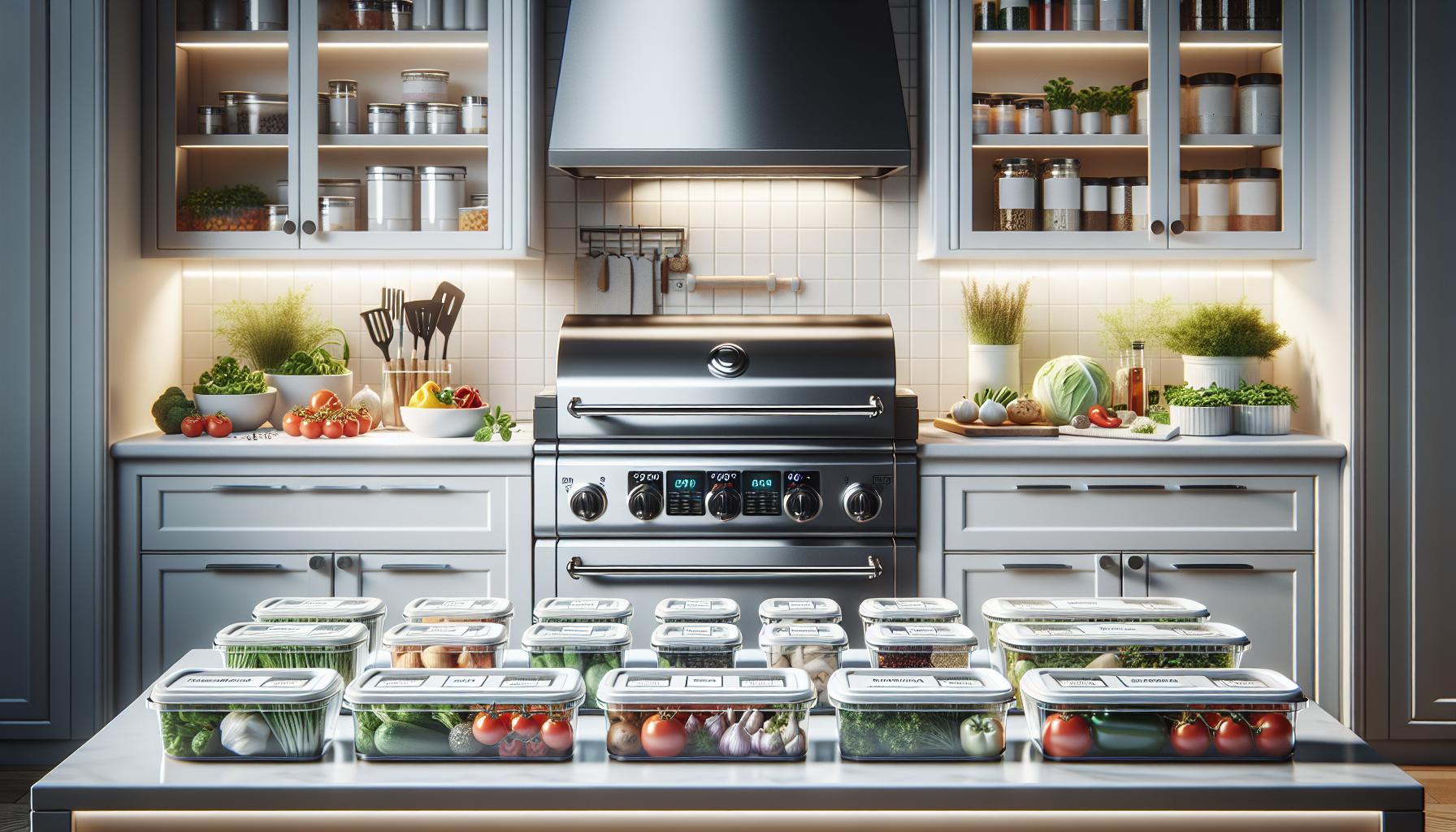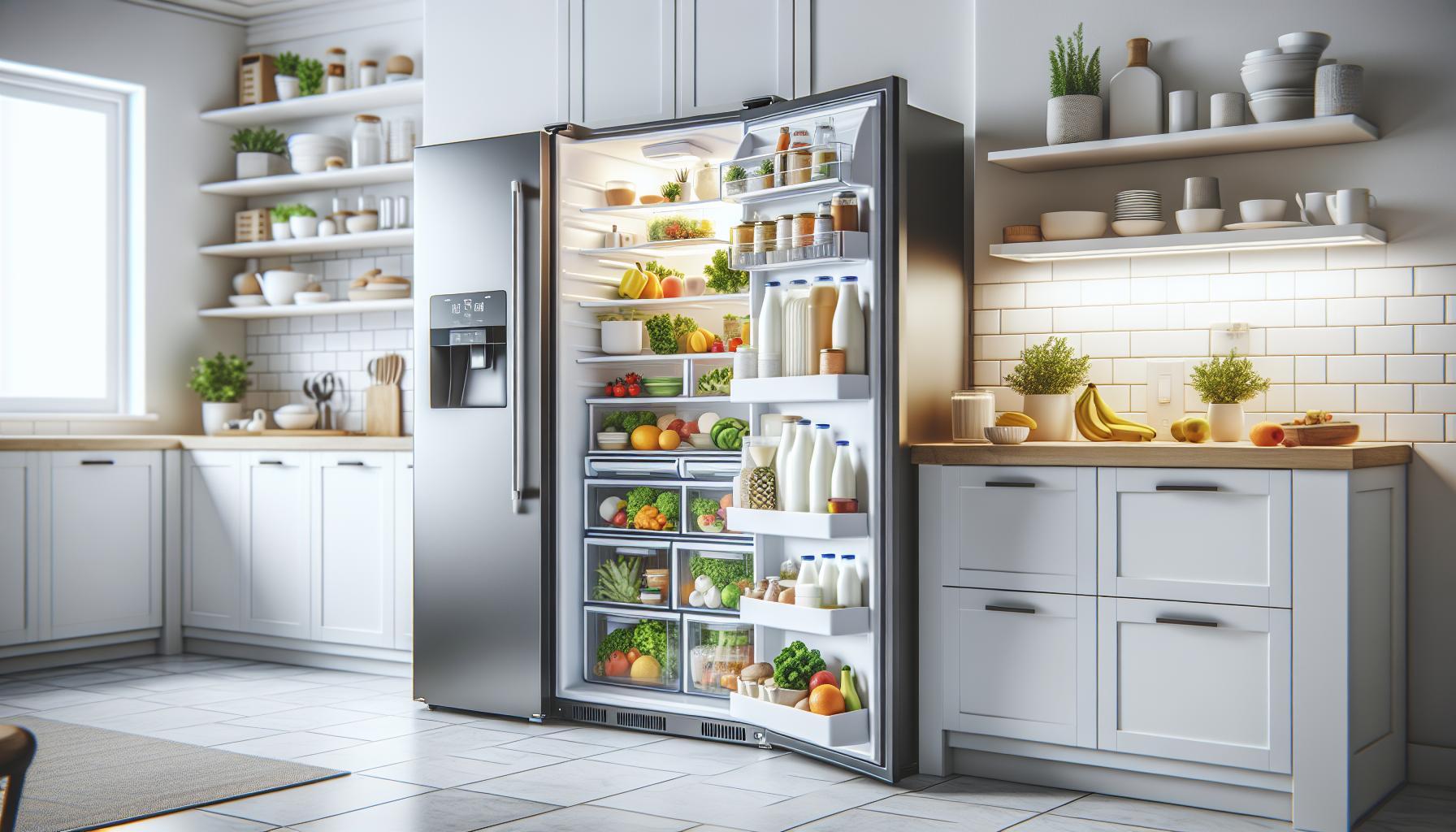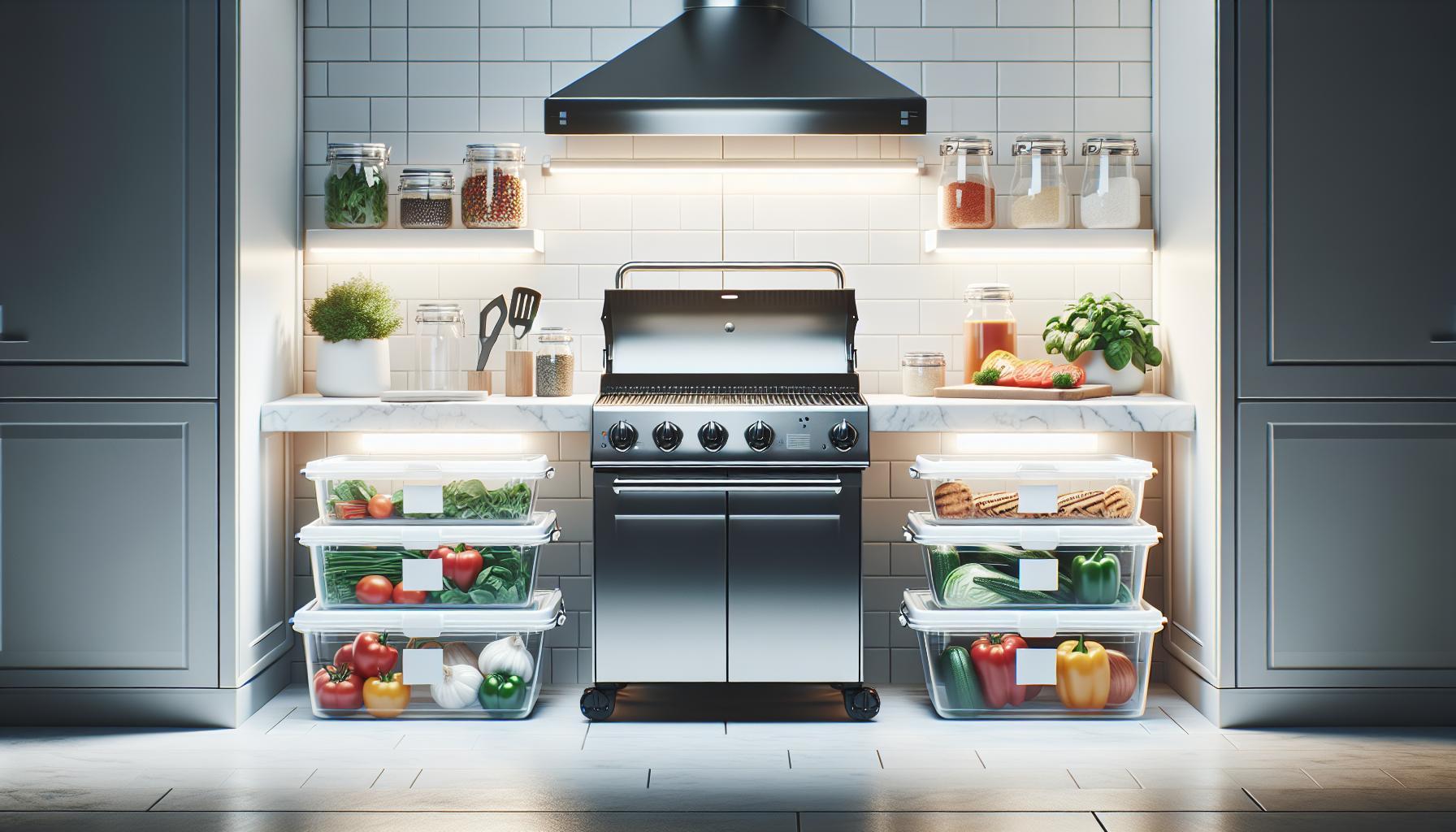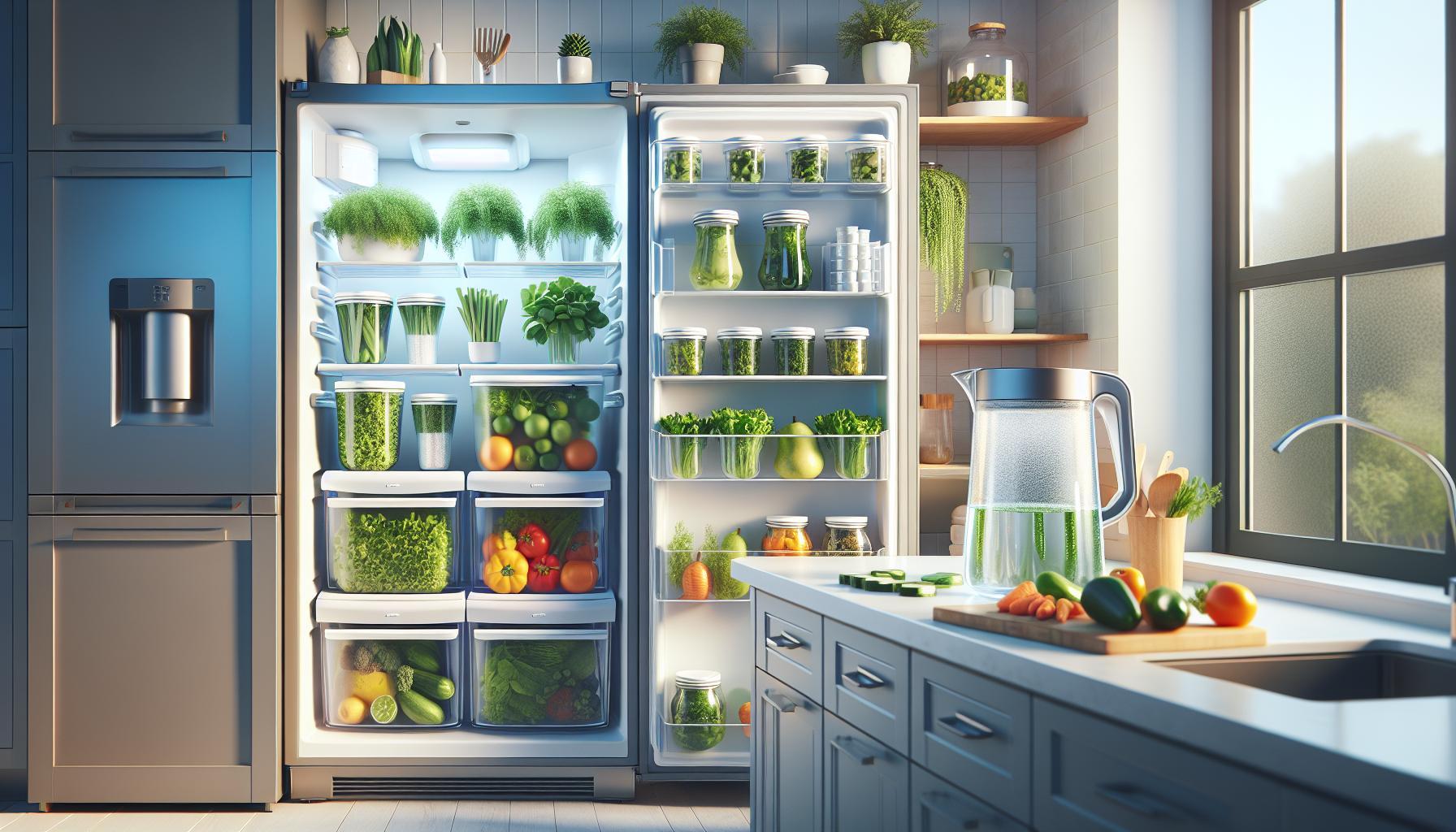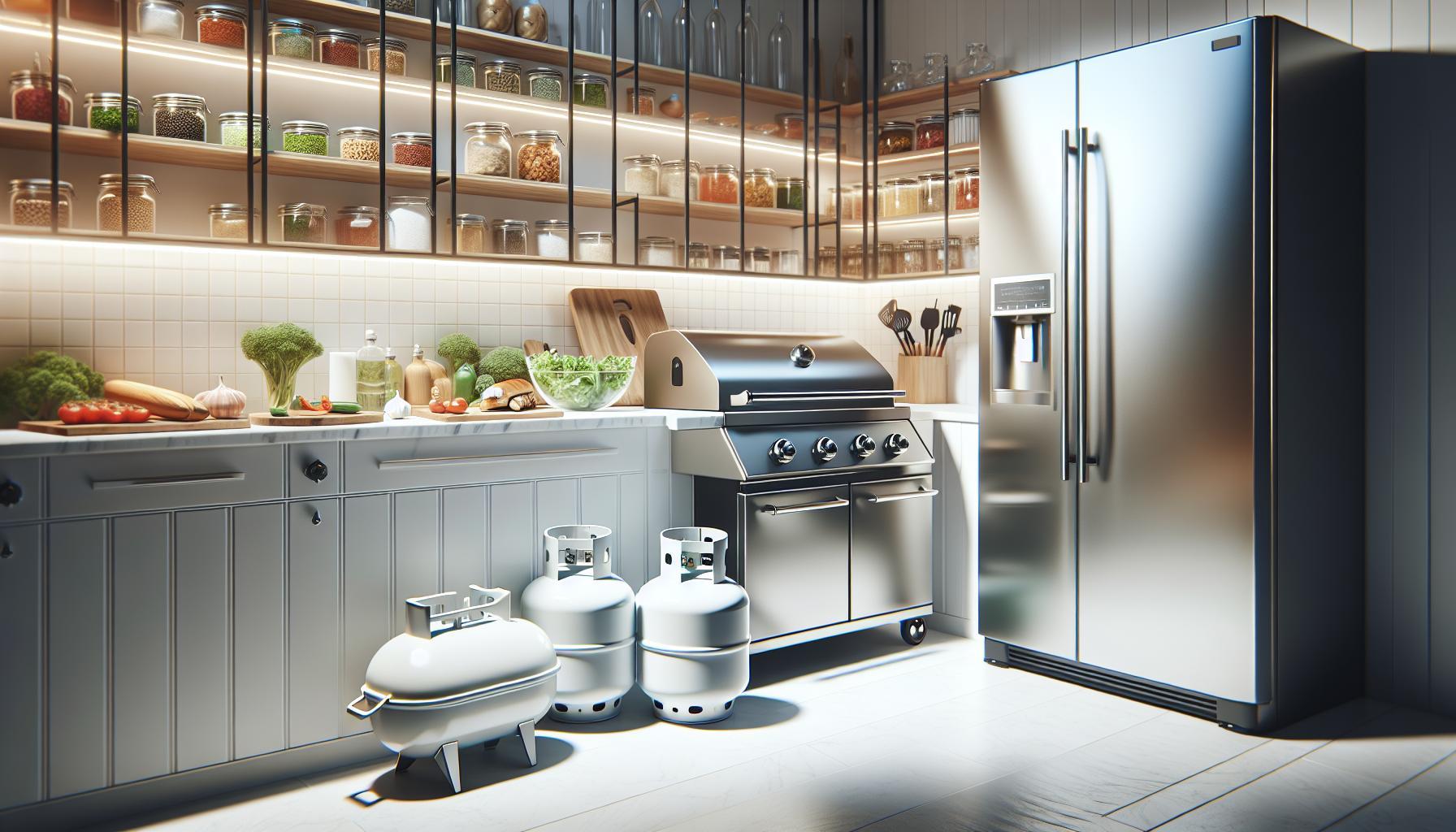Gas grills can be a backyard staple for many, but how long do they actually last? With proper care, a quality gas grill can serve you well for over a decade, providing countless summer barbecues and memorable gatherings. Knowing the lifespan of your grill not only helps you plan for replacements but also ensures you maximize your investment.
Maintaining your gas grill is crucial for optimal performance and safety. Regular upkeep can prevent unexpected repairs and enhance your grilling experience, giving you peace of mind while cooking. As you dive into this guide, you’ll discover practical tips on extending the life of your grill, recognizing the signs that it’s time for an upgrade, and ensuring enjoyable grilling sessions for years ahead. Whether you’re a novice or a seasoned pitmaster, understanding how to care for your gas grill is key to achieving delicious meals and creating lasting memories outdoors.
Gas Grill Lifespan: What to Expect
The lifespan of a gas grill is a critical consideration for any outdoor cooking enthusiast. On average, you can expect a well-maintained gas grill to last anywhere from 5 to 15 years. However, several factors can influence this longevity. For example, the quality of materials used in the grill’s construction, the frequency of use, and the level of care it receives all play significant roles. Higher-end grills made from stainless steel tend to withstand the elements better and last longer than those made from lesser materials.
To maximize the lifespan of your gas grill, it’s beneficial to adopt good maintenance practices. Regular cleaning after each use prevents grease buildup, which can lead to inefficient operation and safety hazards. Additionally, storing the grill in a protected area during harsh weather conditions can help prevent rust and corrosion. Keeping the burners and vents clear of debris also maintains optimal airflow, enhancing performance and extending the lifespan of your grill.
Another vital aspect to consider is the type and frequency of usage. For instance, if you grill year-round, regular checks on key components like the igniter, burners, and hoses are necessary. Noticing subtle performance changes, such as uneven heating or irregular gas flow, can signal a need for maintenance before a critical failure occurs. By staying vigilant and following a structured maintenance routine, you can enjoy delicious meals cooked on your gas grill for many years to come.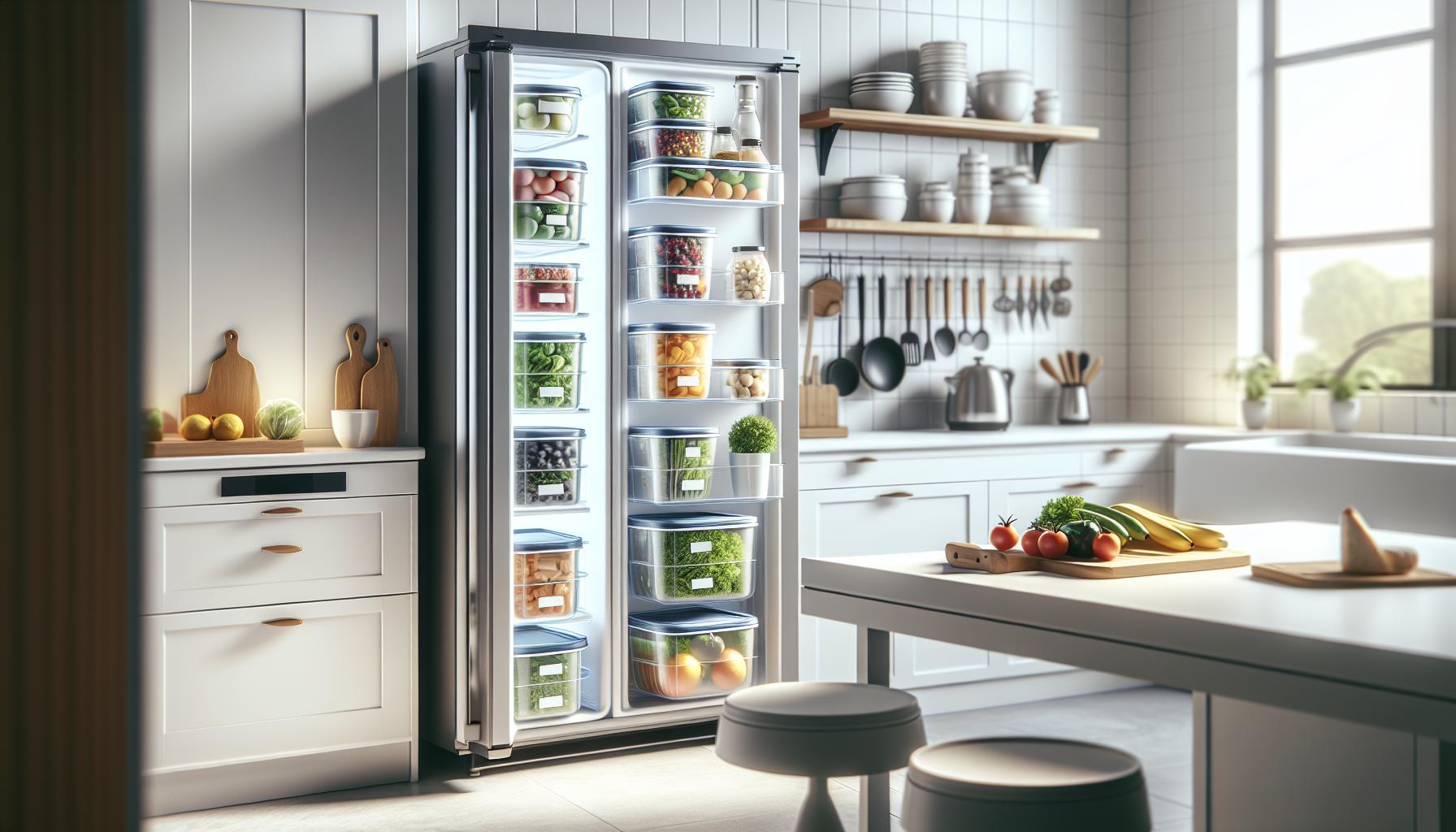
Factors Affecting the Longevity of Gas Grills
The longevity of your gas grill is influenced by a variety of factors that can either enhance its lifespan or hasten its decline. One of the most significant determinants is the quality of construction. Higher-end models crafted from durable materials like stainless steel tend to resist corrosion and withstand the elements far better than grills made from lower-grade metals. Components such as burners and knobs made from thicker metals will also significantly prolong the grill’s life.
Another critical aspect is usage frequency. A grill used only occasionally may last longer than one that sees heavy everyday use. Those who grill year-round should be particularly attentive to wear and tear. The cooking environment also plays a role; grills left exposed to harsh weather conditions will degrade more quickly. If grilling in an environment with high humidity or salt exposure, consider investing in weather-resistant covers or storing the grill indoors during off-seasons to minimize environmental damage.
Maintenance practices can make a substantial difference in a grill’s lifespan. Regular cleaning helps prevent buildup that can block burners or cause flare-ups, compromising safety and efficiency. For example, cleaning grates after every use and performing deeper cleans every few months ensure that your grill operates smoothly. Moreover, taking time to inspect hoses, seals, and connections for leaks or wear can prevent small issues from escalating into costly repairs.
Lastly, understand that longevity is also about how well you listen to your grill. Pay close attention to its performance; any strange sounds, uneven heating, or irregular flames can be telltale signs that maintenance is needed. By proactively addressing these indicators, you can significantly extend the functional life of your gas grill, allowing you to enjoy countless outdoor cooking experiences over the years.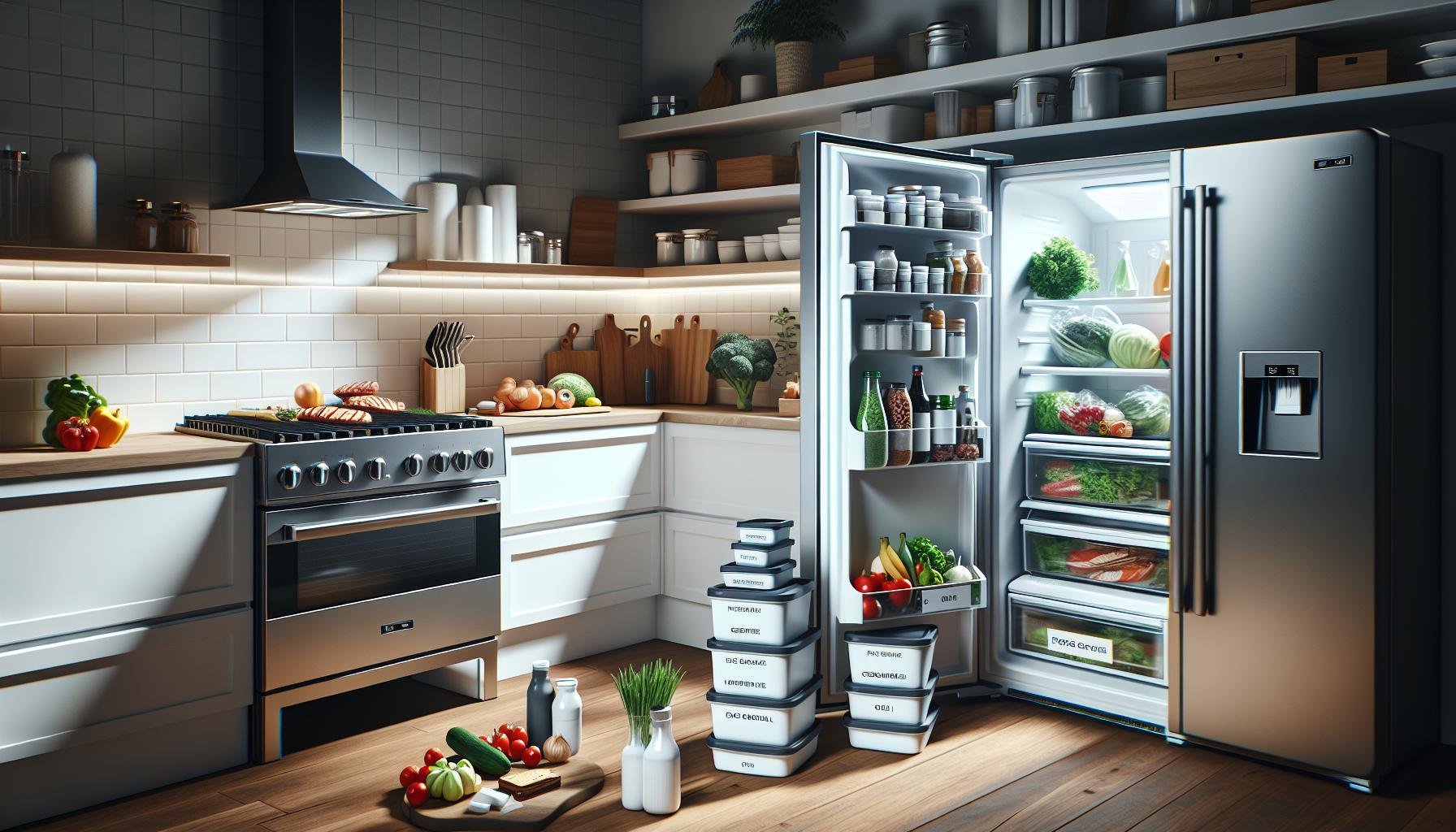
Signs Your Gas Grill Needs Replacement
Recognizing when your gas grill requires replacement is crucial for ensuring safety and optimal cooking performance. Many grill owners overlook the subtle signs that their beloved appliance may be nearing the end of its lifespan. For instance, if you notice significant rusting or corrosion on the grill’s exterior or interior components, it’s a critical indicator that the structural integrity is compromised. While surface rust can sometimes be removed, pervasive corrosion in essential areas such as burners or the heat shield may warrant a replacement, as this can affect the grill’s efficiency and safety.
Another common sign to watch for is uneven cooking. If you find that certain areas of your grill are consistently hotter or colder than others, it could be a sign of malfunctioning burners. Ignition problems, such as failure to light or frequent issues with the flame, are also strong indicators that repairs may not be worthwhile. Continuing to use a grill with these problems could lead to dangerous flare-ups or cooking inconsistencies, ultimately jeopardizing food safety.
If your grill produces excessive smoke or has an unusual and persistent odor, these are red flags that should not be ignored. Such changes can indicate serious issues, like gas leaks or deteriorating connections. Conduct a visual inspection of hoses and seals; if you find signs of wear or if you detect the smell of gas when the grill is not in use, it’s time to prioritize replacement to avoid serious hazards.
Lastly, if you find yourself consistently replacing individual parts-like burners, igniters, or regulator valves-this could be a sign that the grill as a whole is on its last legs. Consider the cost-effectiveness of continuous repairs against investing in a new unit that will provide you with reliable performance for years to come. Investing in a quality grill that suits your needs can enhance your outdoor cooking experience while mitigating safety concerns associated with aging appliances.
In summary, pay close attention to your grill’s performance and structural condition; recognizing these signs can save you from unsafe cooking practices and lead to more enjoyable grilling experiences.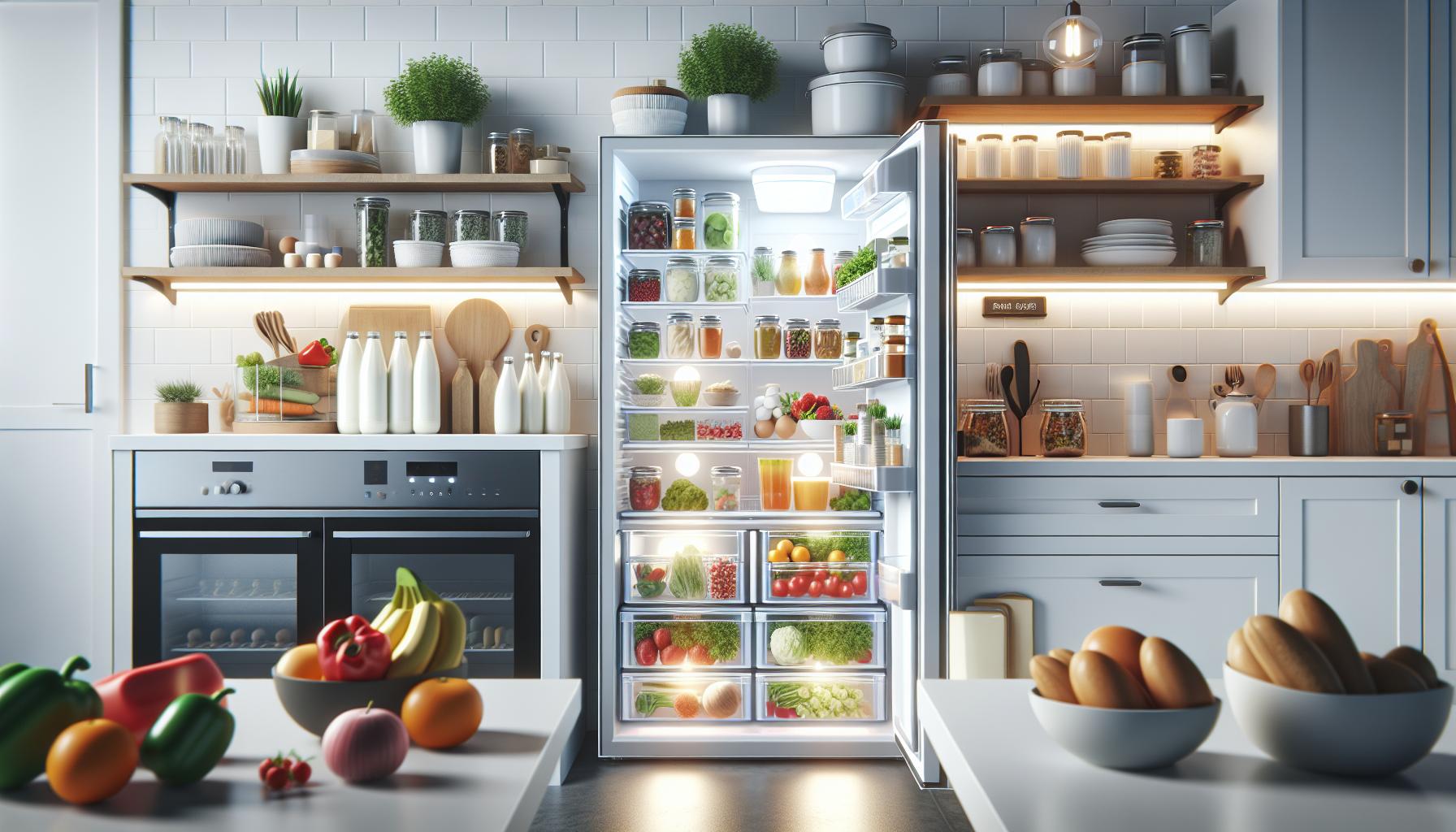
Maintenance Tips to Extend Grill Life
To maximize the lifespan of your gas grill, regular maintenance is essential. Neglecting basic upkeep can lead to a decline in performance and may even pose safety risks. Here are several practical maintenance tips that can help keep your grill in excellent condition, allowing you to enjoy outdoor cooking for many years to come.
Regular Cleaning
One of the most effective ways to extend your grill’s life is to keep it clean. After each use, take a few minutes to scrape down the grates with a grill brush to remove food residue and grease. This prevents buildup, which can cause flare-ups and uneven cooking. Additionally, clean the grease tray to avoid grease fires; check it weekly during heavy use and clean it thoroughly monthly. At least once a season, deep clean your grill by disassembling the grates, removing debris from the burners, and washing the interior and exterior with soapy water.
Inspect and Replace Parts
A proactive approach to part inspection is vital. Regularly check burners, hoses, and connectors for signs of corrosion, wear, or damage. If you notice any issues, replace those parts promptly to maintain performance and safety. It’s often more cost-effective to replace small parts rather than waiting for them to cause more significant problems. Ensure that the ignition system works properly; if your grill frequently fails to ignite, it may be time to examine or replace the igniter.
Protect from the Elements
Weather can wreak havoc on your grill’s longevity. Utilize a high-quality grill cover to shield your appliance from rain, snow, and UV rays. If you live in a region with harsh winters, consider storing your grill indoors or in a garage to prevent frost damage. Always allow your grill to cool down completely before covering it to avoid trapping moisture underneath, which can lead to rust formation.
Seasonal Maintenance
At the beginning of each grilling season, conduct a thorough inspection and maintenance session. This includes checking propane levels, ensuring connections are tight, and testing for gas leaks by applying soapy water to hoses and connections; bubbles will indicate leaks that need addressing. After long periods of inactivity, run the grill on high for 15-20 minutes to burn off any residual moisture and to help prevent rust.
By following these maintenance tips, you can significantly enhance your gas grill’s longevity and performance. Keeping it clean, inspecting parts regularly, protecting it from the elements, and conducting seasonal maintenance are all steps that will ensure a safe and enjoyable grilling experience for many summers to come.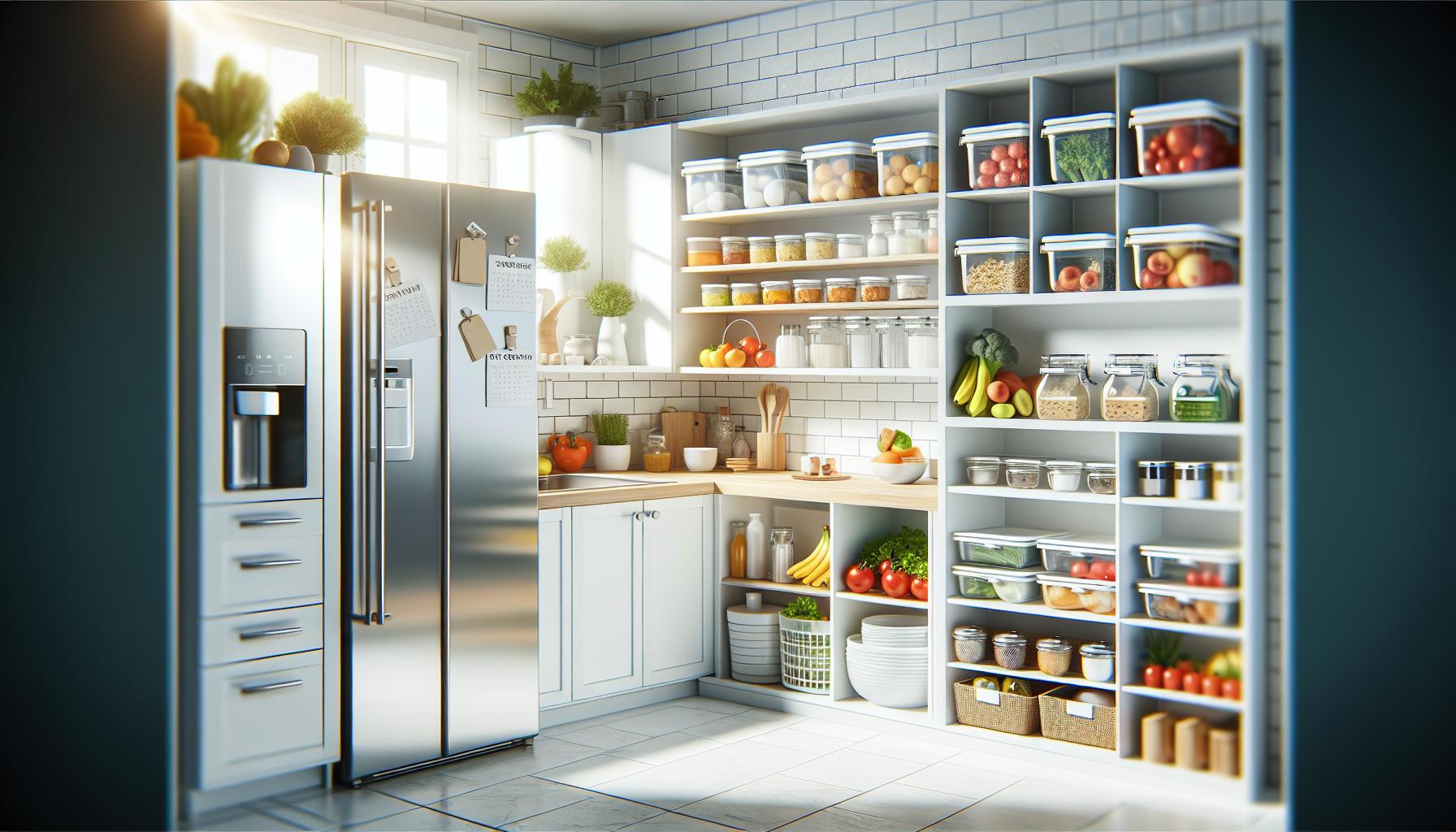
Common Issues and Troubleshooting Solutions
Many grill enthusiasts encounter common issues that can disrupt their cooking experience or even pose safety risks. Understanding these problems, along with their troubleshooting solutions, can help maintain your grill and prolong its lifespan. For instance, if your grill fails to ignite, it could be due to a few factors such as an empty propane tank, a clogged burner, or a malfunctioning igniter. Start by checking the propane level to ensure you have enough fuel. Then, inspect the burner for blockages; cleaning out debris can often resolve ignition problems. If the igniter doesn’t produce a spark, try cleaning the electrodes or replacing the igniter altogether.
Another frequent issue arises with uneven cooking, which can lead to frustration and poorly cooked meals. This problem is often a sign of worn-out burners or uneven heat distribution. Check if the burners are functioning correctly by turning them on individually. If any aren’t heating properly, you may need to clean them or replace them if they’re damaged. Moreover, it’s essential to ensure that the grill grates are clean and properly positioned. Flare-ups can also cause uneven cooking; when that happens, reduce the heat and move food to a cooler part of the grill until the flames subside.
Rust is a common enemy of gas grills, especially if they are not adequately covered or stored. Inspect your grill for any signs of rusting, which can weaken the structure and safety of the appliance. If you find rust, you can often remove lighter rust using a grill brush and follow up with a protective coating of high-temperature paint or oil. Severe rust may mean it’s time to consider a replacement part, such as grates or shelves. Regularly applying a weather-resistant grill cover can help prevent rust formation and extend the life of your grill.
For consistent performance, it’s good practice to perform a quick inspection before each grilling session. Look for gas leaks using a simple soap and water solution to check connections; bubbling indicates a leak that needs immediate attention. If you detect any gas smells or find that the grill is not functioning properly despite following these steps, it’s advisable to consult a professional to ensure safety and proper operation. Addressing these common issues not only enhances the grilling experience but also promotes safety and longevity for your investment.
Seasonal Preparation for Your Gas Grill
Getting your gas grill ready for each season can significantly enhance its performance and longevity. As the weather changes, it’s essential to prepare your grill properly to ensure that it remains in top condition for those delicious barbecues. Whether transitioning into the grilling season or wrapping it up for winter, proper seasonal preparation can prevent rust, maintenance issues, and ensure optimal cooking performance.
Start by cleaning your grill thoroughly before the new grilling season. Remove any grease and debris from the burners, cooking grates, and drip trays. This not only helps prevent flare-ups but also prolongs the life of your grill. Use a grill brush for the grates and a combination of warm soapy water and a sponge for other components. Don’t forget to check and clean the propane tanks and gas lines for any signs of wear or leaks. A simple method to check for leaks is to apply soapy water to the connections; bubbling indicates a leak that needs immediate attention.
As grilling season winds down, it’s crucial to properly winterize the grill. Cover your grill with a weather-resistant cover to protect it from snow, rain, and debris. This prevents rust buildup and keeps the interior dry. If you plan on storing the grill indoors, ensure that you disconnect the propane tank and store it outside in an upright position, away from direct sunlight and heat sources. For long-term storage, removing the propane tank and emptying the grill can also prevent any unwanted odors or gas buildup.
In addition to cleaning and storage, it’s wise to inspect your grill regularly during the off-season. Regular checks can help you spot potential issues before they become significant problems. Look for signs of rust, wear, or damage. Investing in grill accessories designed for protection, such as grill covers and rust inhibitors, can go a long way toward maintaining your grill’s quality over the years. Finally, keep any necessary replacement parts on hand, such as burner tubes or igniters, so you can quickly address any issues and get back to grilling without delays.
By taking these preparatory steps, you ensure that your gas grill remains a reliable companion for many enjoyable cookouts to come, regardless of the season.
Choosing the Right Gas Grill for Durability
When it comes to investing in a gas grill, durability should be at the forefront of your decision-making process. A well-constructed grill not only ensures better performance but also offers a longer lifespan, allowing you to enjoy countless outdoor cooking sessions. High-quality materials are essential; therefore, look for grills made from stainless steel, which is resistant to rust and corrosion, especially if you live in a region with harsh weather conditions. Enamel-coated steel can also provide a good balance between durability and aesthetics.
Pay close attention to the grill’s construction details, such as the welds and joints. Grills that feature welded joints rather than riveted or screwed ones tend to be sturdier and more resistant to wear. Additionally, consider the thickness of the metal; thicker materials can withstand high temperatures and are less likely to warp over time. Features like a heavy-duty lid and robust grill grates are also indicators of a grill built to last.
Beyond material quality, think about the warranty offered by the manufacturer. A longer warranty often reflects the company’s confidence in the product’s durability. Ensure you choose a grill with a warranty that covers essential components like burners and cooking grates for several years. This not only protects your investment but also provides peace of mind.
Lastly, consider your cooking needs and how they align with the grill’s features. If you frequently host large gatherings, opt for a larger grill with multiple burners for even cooking. Conversely, if you have limited space, compact and portable grills made from durable materials can still meet your needs without sacrificing longevity. Investing time in choosing the right grill will pay off in years of grilling enjoyment.
How to Properly Store Your Grill
Taking the time to properly store your gas grill not only protects your investment but also helps ensure it performs well for many grilling seasons. One of the most critical periods for grill storage is during winter or prolonged periods of non-use, when exposure to harsh weather conditions can lead to corrosion and damage. By following a few straightforward steps, you can maintain your grill in peak condition and extend its lifespan significantly.
Begin by thoroughly cleaning your grill to remove any grease, debris, and food particles. Using a specially designed grill brush, scrape the grates and ensure that all remnants are cleared away. Then, perform a thorough wipe down with warm, soapy water, and rinse well. Allow the grill to dry completely to avoid moisture build-up, which can contribute to rust formation. Once clean, it’s essential to detach the propane tank. Store the tank in an upright position, in a well-ventilated area away from direct sunlight and excessive heat.
To safeguard the exterior, consider investing in a high-quality, weather-resistant grill cover. This will protect your grill from elements like rain, snow, and UV rays while allowing for some ventilation to prevent moisture accumulation beneath the cover. Ensure that the cover fits snugly to prevent wind from dislodging it. Additionally, storing your grill in a garage or shed during extreme weather conditions can provide an extra layer of protection.
For those who grill year-round, seasonal checks are essential. Regularly inspect the propane connections, burners, and ignition system to keep everything in working order. It’s also beneficial to lightly apply cooking oil on grill grates before storage to help prevent rust and maintain the non-stick surface. By incorporating these practices, you prolong the life of your gas grill, enabling countless grilling memories with family and friends.
Enhancing Grill Longevity with Accessories
Investing in accessories can significantly enhance the longevity of your gas grill, transforming it from just a cooking appliance into a long-lasting source of culinary joy. Specific tools and add-ons not only protect your grill but also optimize its performance and safety, ensuring that it serves you well for years to come.
Essential Accessories for Protection and Longevity
To shield your grill from the elements, a high-quality grill cover is indispensable. A weather-resistant cover prevents rain, snow, and UV rays from corroding the exterior and degrading the internal components. Look for covers that fit snugly and are designed to allow for ventilation, which helps prevent moisture build-up-one of the primary culprits of rust. Additionally, rust-resistant casters can make moving the grill easier for proper storage and cleaning without damaging your patio or deck.
Performance-Enhancing Tools
Certain accessories can improve cooking performance and longevity as well. Cast iron grill grates provide better heat retention and distribution, while grill mats can prevent food from sticking and reduce flare-ups. A grill thermometer ensures you cook at the ideal temperature, maintaining consistent results and preventing overcooking, which can damage the surface of your grill.
Utilizing grill cleaning tools, such as brushes with brass bristles, can effectively remove residue without scratching or harming the surfaces. Regular cleaning of the burners and grease trays with these tools helps maintain optimal airflow and cooking efficiency.
Utilizing Grilling Accessories Safely
When using accessories, it’s essential to follow safety guidelines. For instance, always allow the grill to cool down before covering it, and store accessories in a dry area to prevent mildew or rust. Implementing a routine maintenance schedule can also ensure that all components, including accessories, are utilized fully while remaining safe and functional.
By incorporating these accessories into your grilling routine and adhering to maintenance best practices, you not only enhance your grill’s performance but also extend its lifespan, allowing you to create countless enjoyable meals and memories.
When to Seek Professional Repair Services
When your grill shows signs of excessive wear or malfunction, it’s crucial to make a timely decision about whether to seek professional help. A staggering number of grill-related incidents, many resulting from neglected repairs, occur every year. Understanding when to consult an expert can prevent further damage, ensure safety, and extend your grill’s life.
If you notice uneven heating, weak flames, or persistent ignition problems, these may be indications of underlying issues that could escalate if not addressed. These symptoms could stem from clogged burners, a malfunctioning regulator, or gas line issues that are not safe to handle without proper training. Additionally, if you observe any signs of rust on the internal components or significant wear on the grill grates, these often require professional assessment. Components that deteriorate dramatically can compromise safety and cooking efficiency.
It is also prudent to call in a professional if you encounter a gas leak or experience a strong odor of gas. Such instances not only pose serious safety hazards but also require immediate attention. Professionals have the expertise to conduct thorough inspections, ensuring your grill operates safely and efficiently. Notably, many repair services offer routine maintenance, which can identify potential problems before they become significant, thus protecting your investment.
In deciding whether to proceed with repairs, weigh the cost against the age and overall condition of your grill. If repairs are likely to exceed half the cost of a new model, it may be wiser to invest in a replacement. Although navigating repair decisions can be stressful, prioritizing safety and functionality ensures many more seasons of enjoyable grilling experiences.
Budgeting for Gas Grill Replacement and Upgrades
Making informed financial decisions about your gas grill can significantly improve your grilling experience and help avoid unexpected expenses. Many homeowners overlook the importance of budgeting for grill replacement and upgrades, often leading to rushed purchases when their current grill fails. By understanding the costs involved and planning ahead, you can ensure that your next investment in a gas grill provides lasting satisfaction and meets your culinary needs.
When considering a budget for replacing or upgrading your grill, it’s essential to evaluate both the initial costs and the long-term expenses associated with ownership. A typical entry-level gas grill may cost around $300 to $600, while higher-end models can range from $1,000 to over $3,000. Take time to research brands and models that have a reputation for durability and features that align with your grilling habits. Features like stainless steel burners, rotisserie kits, and built-in temperature gauges can improve performance but may also affect your budget. Assess your local market and sales seasons, as many manufacturers offer discounts during major holidays or off-peak months, allowing you to save substantially on your purchase.
Another critical factor in budgeting is understanding the cost of maintenance and potential repairs over the grill’s life. Depending on usage, maintenance might entail periodic tasks such as replacing burners, cleaning, and inspecting gas lines. Set aside a small annual budget, around 10-15% of the initial grill cost, to cover these expenses. By doing so, you’ll be prepared for routine maintenance, ensuring your grill remains in excellent working condition and extending its lifespan.
Finally, always consider potential upgrades that can enhance your grilling experience without needing a complete replacement. Accessories like grill covers, cooking tools, and smoker boxes can elevate your grill’s functionality. Investing in high-quality accessories could also support better cooking outcomes while protecting your grill from wear and tear. By planning for both immediate replacements and future enhancements, you can enjoy your grilling passion while effectively managing your budget and ensuring you make effective use of your grill throughout the years.
Expert Recommendations for Grill Care
To ensure your gas grill remains in optimal condition and delivers delightful meals for years to come, adopting best practices for grill care is essential. One of the foremost recommendations is to perform regular cleanings. After each use, scrape down the grates with a grill brush to remove food residue, preventing buildup that can lead to rust and corrosion. Additionally, deep clean your grill at least twice a year by disassembling components such as burners and heat shields to remove grease and debris, which can affect performance.
Monitoring gas connections is another critical aspect of grill maintenance. Check hoses and fittings for leaks before every use by applying soapy water to connections. If bubbles form, it indicates a gas leak, and you should tighten the connection or replace the hose before using the grill. Furthermore, ensure that the grill is stored in a covered area to protect it from the elements. Using a weather-resistant cover will safeguard against rain, snow, and UV rays, which can deteriorate materials over time.
To enhance your grilling experience and longevity, consider investing in quality accessories. For instance, a reliable thermometer can greatly improve cooking accuracy, ensuring that meats are grilled to safe temperatures while preventing overcooking. Other beneficial accessories include grill mats and drip pans to contain splatters and reduce the need for intensive cleaning.
Always prioritize safety while handling a gas grill. Ensure that you are familiar with the manufacturer’s guidelines for operation and maintenance. Regularly inspect your gas source for proper functionality, and if you experience any performance issues, don’t hesitate to consult a professional. By implementing these recommendations, you can maximize your grill’s lifespan and enjoy countless successful barbecues.
Frequently Asked Questions
Q: How can I tell if my gas grill is still safe to use?
A: Check for any rust, damage, or gas leaks. Inspect hoses and connections for cracks. Conduct a soapy water test: apply soapy water to connections, and if bubbles form, there’s a leak. If any issues are found, consider replacing parts or the grill itself.
Q: What is the average lifespan of a gas grill?
A: The average lifespan of a gas grill is around 5 to 15 years, depending on the quality of materials and maintenance. Investing in higher-quality grills and performing regular maintenance can extend this lifespan significantly.
Q: Are there specific brands known for their durability in gas grills?
A: Yes, brands like Weber, Broil King, and Napoleon are well-known for their durable gas grills. These brands often use high-quality materials and have strong warranties, indicating reliability and longevity.
Q: How often should I clean my gas grill to prolong its life?
A: Clean your gas grill after each use to prevent grease buildup and corrosion. Additionally, perform a deep clean every few months, including scrubbing grates and checking burners, which is covered under “Maintenance Tips to Extend Grill Life.”
Q: What are the best practices for grilling in cold weather?
A: In cold weather, preheat your grill longer to ensure proper cooking temperatures. Keep the grill covered, and use insulated gloves when handling hot grates. Also, consider moving your grill to a sheltered location to promote better heat retention.
Q: Can using propane tanks affect the lifespan of my gas grill?
A: Yes, using high-quality propane tanks and properly maintaining them can impact your gas grill’s lifespan. Always check for leaks and ensure tanks are stored correctly to prevent damage to the grill.
Q: How do I choose the right location for my gas grill?
A: Select a flat, stable surface away from flammable materials, preferably with access to windbreaks. Ensure adequate ventilation and enough clearance for heat emissions and grease runoff, aligning with seasonal preparation tips for grill storage.
Q: What are some common troubleshooting solutions for gas grill issues?
A: For uneven heating, check for clogged burners or insufficient gas supply. If the grill won’t ignite, inspect the igniter and ensure the gas valve is open. Regular checkups can prevent many common gas grill issues.
To Wrap It Up
Now that you know how long gas grills last and how to extend their lifespan, it’s time to take action! Start by performing routine maintenance on your grill, as this is vital for ensuring safe and optimal cooking experiences. Interested in more grilling tips? Check out our articles on “How to Clean Your Gas Grill” and “Best Grilling Accessories” to enhance your outdoor cooking adventures.
Don’t miss out on new information; subscribe to our newsletter for the latest tips and tricks! Your grilling journey doesn’t have to end here-explore our site for more insights, and feel free to share your grilling experiences in the comments below. Remember, a well-maintained grill can serve you delicious meals for years to come!

